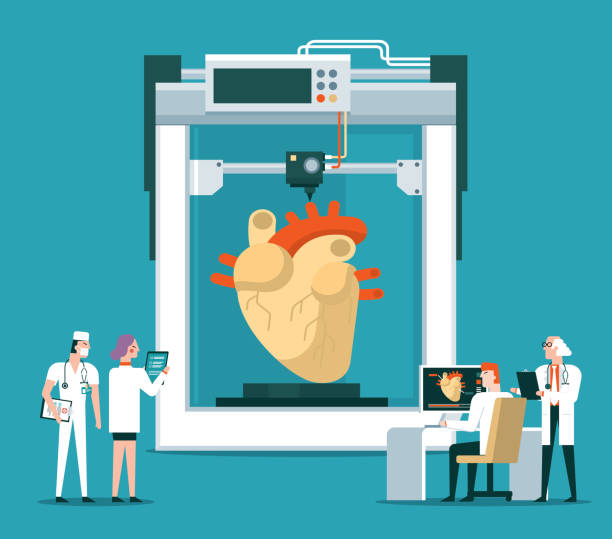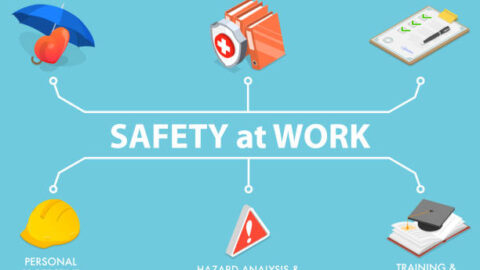The Future of Healthcare: How Technology will Shape the Industry

Table of Contents
Healthcare is one of the most important industries in the world. It touches all of our lives, and its importance will only continue to grow as the population ages. The healthcare industry is also one of the largest and most complex, with a wide variety of stakeholders, from patient to providers to payers. This complexity makes it hard to change or innovate, but it is clear that healthcare must change if it is to meet the challenges of the future. One of the biggest challenges facing the future of healthcare technology is the increasing cost of care. In the United States, spending on healthcare grew by 4.3% in 2015, reaching $3.2 trillion (1). This growth is not sustainable, and something is necessary to bring down costs. One way to do this is to use technology to improve efficiency and reduce waste.
Healthcare policy managers must be aware of the potential for technology to shape the future of healthcare. They need to understand how different technologies can be used to improve care delivery and make it more affordable, as well as to create operational excellence in healthcare. In this paper, we will discuss some of the most important emerging technologies in healthcare and their potential impact on the industry.
1. Telemedicine for the Future of Healthcare Technology

Telemedicine is the use of telecommunications and information technology to provide medical care from a distance. It has been used for many years to connect doctors with patients in remote areas, but its use is growing rapidly as more and more people have access to high-speed internet and mobile devices.
There are many potential applications of telemedicine, from providing primary care to specialist services, to mental health and addiction counseling. Telemedicine can improve access to care, especially for rural and underserved populations. It can also save time and money by reducing or eliminating the need for travel.
One of the most promising applications of telemedicine is in the area of chronic disease management. Chronic diseases are responsible for a large proportion of healthcare costs, and their management is often complex and time-consuming. Telemedicine can help patients manage their conditions more effectively, reducing the need for expensive hospital visits or other face-to-face interactions with providers.
2. Artificial intelligence (AI) Enhancing the Future of Healthcare Technology
Artificial intelligence (AI) is a broad term that covers a wide range of technologies. From simple pattern recognition to more sophisticated forms of learning and reasoning. AI is already being used in many different industries, and its use is growing rapidly in healthcare.
There are a number of potential applications for AI in healthcare, from assisting in the diagnosis of disease to providing personalized care plans. AI can also be used to improve the efficiency of clinical trials or to identify new uses for existing drugs.
One area where AI is particularly promising is in the field of precision medicine. Precision medicine is an approach to healthcare that takes into account an individual’s genetic makeup, lifestyle, and environment when designing treatment plans. AI can be used to analyze large data sets to identify patterns and relationships that would be difficult for humans to find. This information can then be used to develop more personalized and effective treatments.
The future of ai in healthcare is a rapidly advancing field, encompassing a wide range of technologies from simple pattern recognition to more sophisticated forms of learning and reasoning.
3. 3D printing
3D printing is a type of manufacturing that allows objects to be created from digital models. It has been used for many years in the manufacturing of small parts and prototypes in the future of healthcare technology. But its use is now expanding into other areas, including healthcare.

There are a number of potential applications for 3D printing in healthcare, from the creation of prosthetic limbs to the production of custom medications. 3D printing can also be used to create models of organs or tissues, which can be used for training or research purposes.
One area where 3D printing is particularly promising is in the field of regenerative medicine. Regenerative medicine is a relatively new field that uses cells and tissue to repair or replace damaged tissue. 3D printing can be used to create scaffolds on which cells can be grown, or to produce implants or prosthetics that are customized to an individual’s body.
4. Virtual reality (VR)
Virtual reality (VR) is a technology that allows users to interact with computer-generated environments. VR has been used for many years in gaming and entertainment, but its use is now expanding into other areas, including healthcare.
There are a number of potential applications for VR in healthcare, from providing immersive training experiences to assisting in the diagnosis and treatment of conditions such as anxiety and post-traumatic stress disorder. VR can create virtual models of organs or body parts. And it can work for educational or research purposes.
One area where VR is particularly promising is in the field of rehabilitation. Rehabilitation is the process of helping people recover from injuries or illnesses and return to their previous level of functioning. VR can create realistic environments that can help patients practice new skills or relearn old ones.
5. Augmented reality (AR)
Augmented reality (AR) is a technology that allows users to superimpose digital information on their view of the real world. AR is here for many years in gaming and entertainment. But its use is now expanding into other areas, including healthcare.
There are a number of potential applications for AR in the future of healthcare technology, from providing information about medications or treatments to assisting in the diagnosis and treatment of conditions. AR can also create virtual models of organs or body parts, which can be for educational or research purposes.
One area where AR is particularly promising is in the field of surgery. Surgery is a highly complex and sensitive procedure, and even small mistakes can have serious consequences. AR can provide surgeons with real-time information about a patient’s anatomy. It can help to improve the accuracy of surgical procedures.
6. Blockchain
Blockchain is a type of distributed ledger technology that allows information to be stored and shared across a network of computers. But Blockchain is in use for many years in the financial sector. But its use is now expanding into other areas, including the future of healthcare technology.
There are a number of potential applications for blockchain in healthcare, from streamlining the claims process to improving data security. Blockchain can create a decentralized database of medical records. And it could make it easier for researchers to access and share data.
One area where blockchain is particularly promising is in the field of clinical trials. Because clinical trials are an essential part of developing new treatments and drugs, but they can be costly and time-consuming. Blockchain can create a secure and efficient way to manage clinical trial data, which could help to speed up the development process.
7. Artificial intelligence (AI) to Level up the Future of Healthcare
Artificial intelligence (AI) is a type of computing that focuses on creating intelligent machines that can learn and work on their own. And AI is in for many years in gaming and entertainment. But its use is now expanding into other areas, including healthcare.
There are a number of potential applications for AI in healthcare, from providing decision support to assisting in the diagnosis and treatment of conditions. So, AI can create virtual models of organs or body parts, which is for educational or research purposes.
One area where AI is particularly promising is in the field of drug development. Drug development is a long and expensive process, and even small improvements can have a big impact. AI can speed up the drug development process by identifying new targets for drugs and discovering new ways to test them.

Business Developmeny Manager at PAS InfoCom Technologies Ltd. Experienced in project management with a demonstrated history of working in the information technology and services industry.









